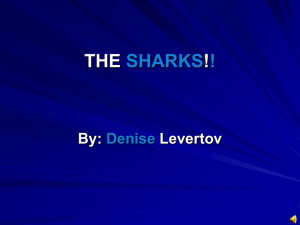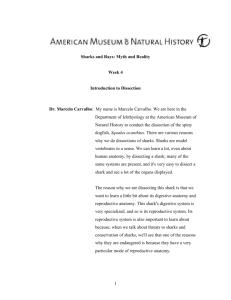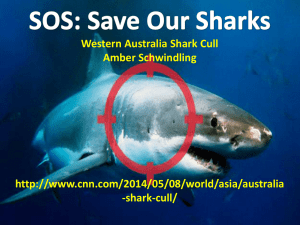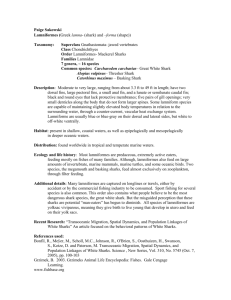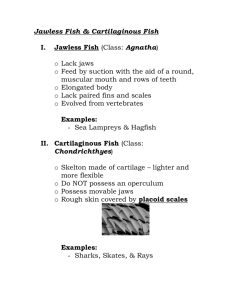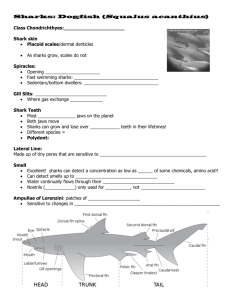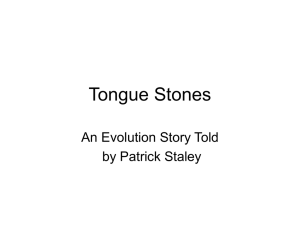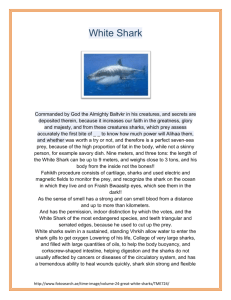Jaws of a shark
advertisement
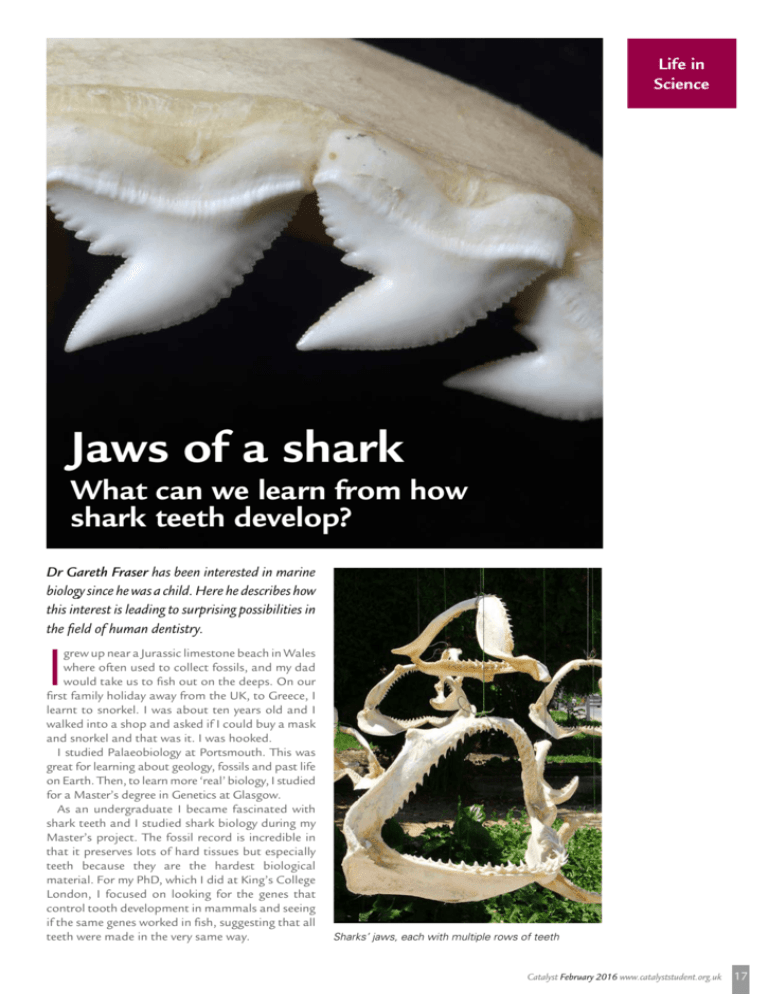
Life in Science Jaws of a shark What can we learn from how shark teeth develop? Dr Gareth Fraser has been interested in marine biology since he was a child. Here he describes how this interest is leading to surprising possibilities in the field of human dentistry. I grew up near a Jurassic limestone beach in Wales where often used to collect fossils, and my dad would take us to fish out on the deeps. On our first family holiday away from the UK, to Greece, I learnt to snorkel. I was about ten years old and I walked into a shop and asked if I could buy a mask and snorkel and that was it. I was hooked. I studied Palaeobiology at Portsmouth. This was great for learning about geology, fossils and past life on Earth. Then, to learn more ‘real’ biology, I studied for a Master’s degree in Genetics at Glasgow. As an undergraduate I became fascinated with shark teeth and I studied shark biology during my Master’s project. The fossil record is incredible in that it preserves lots of hard tissues but especially teeth because they are the hardest biological material. For my PhD, which I did at King’s College London, I focused on looking for the genes that control tooth development in mammals and seeing if the same genes worked in fish, suggesting that all teeth were made in the very same way. Sharks’ jaws, each with multiple rows of teeth Catalyst February 2016 www.catalyststudent.org.uk 17 The Shark Trust (www.sharktrust. org) organises a Great Eggcase Hunt Project where groups of volunteers collect mermaids purses (shark egg cases) that wash up onto beaches. This gives scientists a good understanding of where sharks are breeding and laying their eggs. They also organise fun activities with school groups and the general public to educate people about sharks. Whatever you do, just get stuck in and be inspired by nature! You can find fossilized shark teeth like these at many sites in the UK. New teeth for old Fish, especially sharks, can regenerate replacement sets of teeth throughout life. This is thought to be a very ancient programme. Mammals were probably able to replace their teeth to a greater extent than now but they have lost that ability over evolutionary time. That programme has always been there – sharks represent the most ancient and primitive state, and from there we have arrived at a state of fewer and fewer replacement rounds. My main focus now is cranio-facial development, using fishes as model organisms. I am also investigating the molecular basis behind tooth regeneration and why fish are able to regenerate teeth continuously throughout life while we only have two sets of teeth. There are a number of cells in the human system that hint that this system can be turned on again in mammals, for example the pockets of cells that form the wisdom teeth late in adolescence. These contain stem cells which, in sharks, are active throughout life. The human adult jaw is thought to contain islands of these cells that could potentially be used for tooth regeneration but which just sit there quietly over time. In some cases, they can become active again and become cysts or tumours that can cause problems. We are trying to isolate these cells to figure out the genetic mechanism that keeps them quiet and how they could be activated to spark a new tooth. Working with the Dental School at the University of Sheffield we hope that, one day, we can apply our research to help humans who have lost a tooth. At the moment, the only options are implants or dentures; these are invasive, painful and expensive. The idea is to be able to say, “If you need teeth, we can get you your own teeth and they will develop painlessly, just like your second set did.” It’s going to take a long time – many years – to learn about the human and shark systems and piece together their evolutionary history. Gareth Fraser swims with sharks (right and top right) 18 Catalyst February 2016 www.catalyststudent.org.uk Sharks in the ecosystem I think sharks are targeted because they are the biggest predators in the ocean. However, current research is starting to reveal more about these animals – where they breed, where they feed, where they migrate to. This allows us to build a story about how sharks are important for the ocean and not the vengeful killers that the movies portray. Sharks are predators – we can’t lie about that – but they usually feed on injured or dead animals. If sharks became extinct, the ocean would be put into disequilibrium as things that would normally be preyed on would explode in number – having detrimental effects on the balance of the oceans. Take the Basking Shark. These are beautiful, graceful creatures but a little bit misunderstood. They are the second largest fish in the water but they are filter feeders, preying on nothing other than plankton. Often when people see basking sharks off the coast of the UK, they think it’s a Great White and the tabloids write stories saying, “There’s a Great White in the UK!” but it turns out to be a Basking Shark. I think it would be better if they wrote stories of the beauty of the Basking Shark. Using satellite tags, we have recently found that these sharks undergo huge migrations around the world, coming back to feed in the UK in the summertime. It’s very impressive! For anyone hoping to study sharks and marine biology I think the best advice would be to get involved – get out there and get your hands dirty. The problem for children at school is that they’re told a lot but they don’t do a lot. For me, the key was to be able to go out and do something. There are lots of organisations and conservation groups that work to spread the word about how important sharks are. Dr Gareth Fraser is a lecturer at the University of Sheffield, UK. Find out more about his work at http://www.fraser-lab.net
